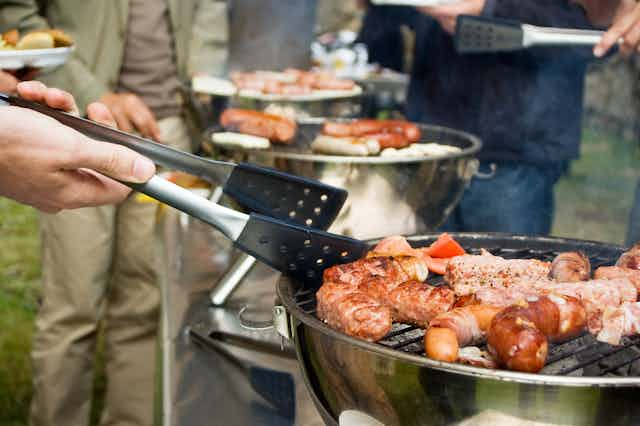As we gather to share a meal with friends and family this festive season, it is the ideal time to reflect on our relationship with food, including our dependence on those who grow it for us.
Australians enjoy one of the safest, most abundant and still relatively affordable food systems in the world.
But we are also are in the midst of an obesity epidemic, related to a high-calorie, low-nutrient diet that is partly due to our cereal-dominated agriculture.
At the same time, many of the farms and food processing businesses supplying our food are struggling to produce a decent return on their investment.
And the natural resources underpinning our food production are under threat from climate change, soil degradation, loss of biodiversity, and competing claims from mining and other uses.
While these challenges are reasonably well recognised, there is little consensus on how to respond - which is worth reflecting on now, while we still have the time to make better choices for Australia’s food future.
Planning for feast or famine?
Among government, academic and industry circles, the most common approach is to support only incremental changes to the way we grow and manage our food production.
But that’s not the only view, with a growing minority calling for much greater, transformative change.
The Australian government is currently developing the first National Food Plan, examining whether we have the right policies in place to support a sustainable, resilient and globally-competitive food supply.
The consultation paper released in July paints a generally rosy picture of Australian food, and the government should be commended for trying to come up with a comprehensive plan on such a vital issue.
However, if the final National Food Plan is similar to the consultation paper, then it looks likely to back the dominant approach, focusing largely on increasing productivity and harnessing market forces to drive greater efficiency and competitiveness.
That kind of thinking is a classic example of neo-liberalism.
If we fail to question that approach, we are taking a huge gamble on our future food security.
Counting the true costs
More intensive agricultural practices can often help boost productivity - something that is easy to measure, and is generally assumed to always be a good thing.
But what about the downsides?
Sometimes these downsides can be harder to measure, but they are no less important - for instance, the degradation of the natural resource base, or the loss of community services and ‘social capital’ that can occur as smaller farms are bought up and consolidated into a bigger property.
Unfortunately, under the dominant approach to agriculture policy, such legitimate concerns are often not accounted for.
The obesity epidemic and its associated health costs can also be written-off as a similar “externality”, or a cost that is not fully accounted for, in our current food system.
Food for the future
The challenge of global food security has been described as one of the greatest challenges facing humankind.
How we respond to to this challenge will largely determine the future of humanity.
The next few decades between now and 2050 have been described by some as “the bottleneck”, when human appetites for more of everything will test several global ecological limits.
The interconnected challenges of food and water security, human health, a healthy environment and energy security will require far more integrated responses from government and business.
Just doing more of the same will not be enough to solve the complex, uncertain, and contested challenges of tomorrow.
Breaking down barriers for action
This real-world need for an integrated and systemic response is often in direct conflict with the traditional discipline structures so diligently protected in our universities and research organisations.
The challenge of sustainability requires an ‘un-disciplined’ response, including rethinking the role of science and research in our food and agriculture systems.
The starting point for this critical re-evaluation needs to start with what we value.
We need to examine alternatives to the dominant approach of productionist agriculture, focusing on efficiency and competitiveness above all else.
Are there alternative paradigms that might be more sympathetic to nature and rural communities?
One possible alternative is the agrarian vision, summed up so eloquently by American poet, philosopher and farmer, Wendell Berry.
In his recent lecture, “It All Turns On Affection”, Berry argues for a return to local agricultural economies, based on a deep affection for the land.
In Australia, we need to be talking about the complex issues involved with trying to deliver on the government’s aim of a genuinely “sustainable and resilient” food supply.
Healthier choices
So as we look forward to another year, let us consider the food on our plates and how we can all become more aware and active in our food choices.
We can do that any time we’re about to buy food, by asking three important questions.
Is this a healthy food choice? What is the environmental footprint of my food choices? And are producers and processors receiving a fair share of my food dollar?
In Australia we really do enjoy a wonderful food supply and we have much to be thankful for.
But we also need to take responsibility for our individual food choices and collectively strive for good, clean and fair food outcomes.
And this Christmas, let’s not forget a toast of appreciation to our farmers. Cheers!

